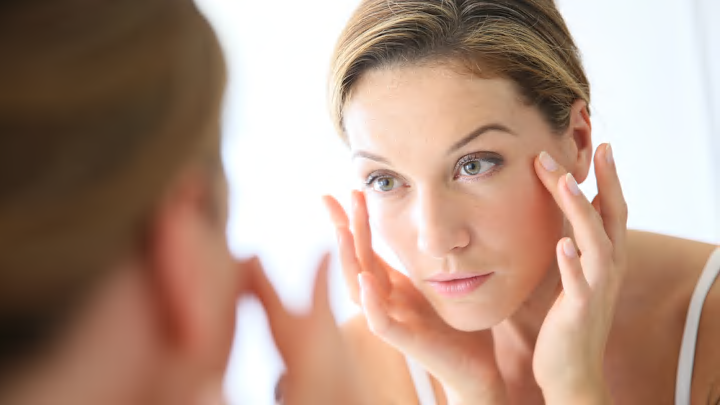From Shame to Celebration: My Skincare Story

I didn’t touch my face in public for years. I mastered the art of angling my head slightly away in conversations, of laughing with one hand casually grazing my cheek, of never—never—letting anyone see me without makeup. My skin was a battlefield, and I was its most exhausted soldier.
It started in middle school. The first blemish bloomed right before a class photo, and I remember the way it seemed to grow larger the longer I stared at it. My mom told me not to pick at it, which of course made me pick at it even more. One breakout turned into clusters, which turned into redness, scarring, flaking. Then came the parade of cleansers and toners, clay masks and benzoyl peroxide—bottles lined up like soldiers on the bathroom counter. I prayed for clear skin like someone praying for a new life.
By high school, the shame had seeped in deep. I wore foundation the way a person wears armor. I didn’t care if it looked cakey or mismatched my neck. The goal was not to look good—the goal was to not look like me. Every compliment I received that wasn’t about my appearance felt safer. Every time someone said, “You have such nice eyes,” I wondered if that was code for “Everything else is a mess.”
At the time, skincare felt like punishment. Ten steps before bed, seven in the morning. If I forgot one, I blamed myself for the flare-up. It was a cycle of control and blame: if my skin was bad, I had failed. If it was good, I had done just enough not to be hated.
And then, somewhere between growing older and growing tired, something shifted.
I stopped trying to fix my face and started trying to understand it. Instead of seeing every pimple as a sign of failure, I asked what my skin was trying to say. Tired? Stressed? Over-exfoliated? Hungry for water? It became a conversation, not a condemnation. Slowly, I swapped out the harsh products for ones that soothed. I spent less time scrutinizing my face in the mirror and more time feeling it with clean, gentle hands. I treated it not like a project, but like a part of me that deserved softness.
And softness has a way of multiplying. I found communities online where people shared bare-faced selfies with acne, hyperpigmentation, scars. Not as “before” photos—just as themselves. I saw beauty in their faces, raw and unfiltered. And I started to believe, just maybe, there was beauty in mine, too.
Today, skincare is something I look forward to. My routine is slower, smaller. It’s less about fighting and more about tending. I still get breakouts, and I still have scarring, and sometimes I still feel that old tug of shame—but it’s quieter now. There are nights I skip the serum, mornings I forget the SPF, and I no longer spiral into guilt. My skin is not a billboard or a business card. It’s just my skin. And I’ve grown fond of it.
So here I am: face bare, fingers clean, chin tilted up. I catch myself in a bathroom mirror under those unkind fluorescent lights, and I don’t flinch. I might even smile.
Because what began in shame has become a celebration—not of perfection, but of presence. My skin has held all of me: my worry, my growth, my laughter. That’s something worth honoring. That’s something worth showing.